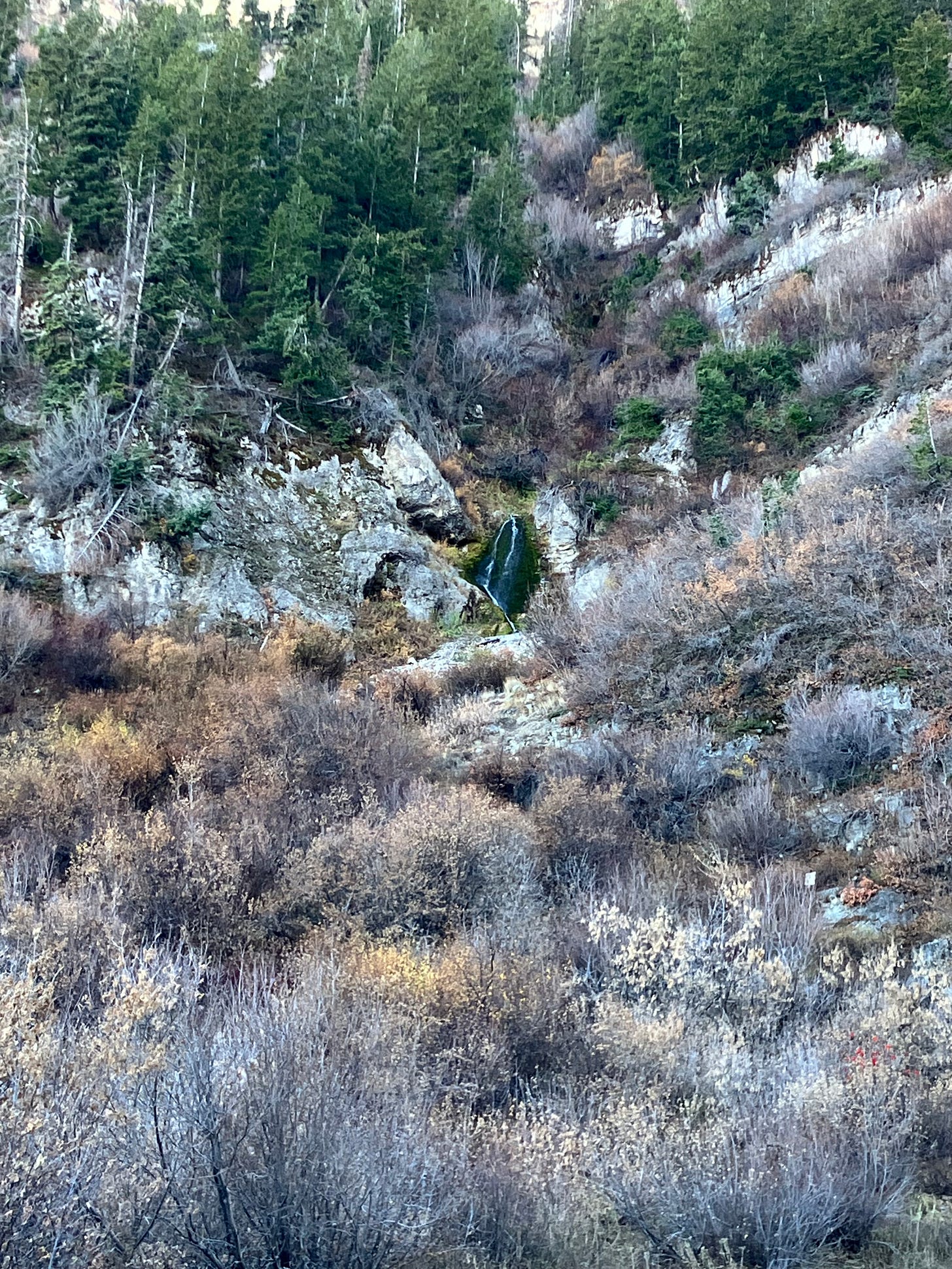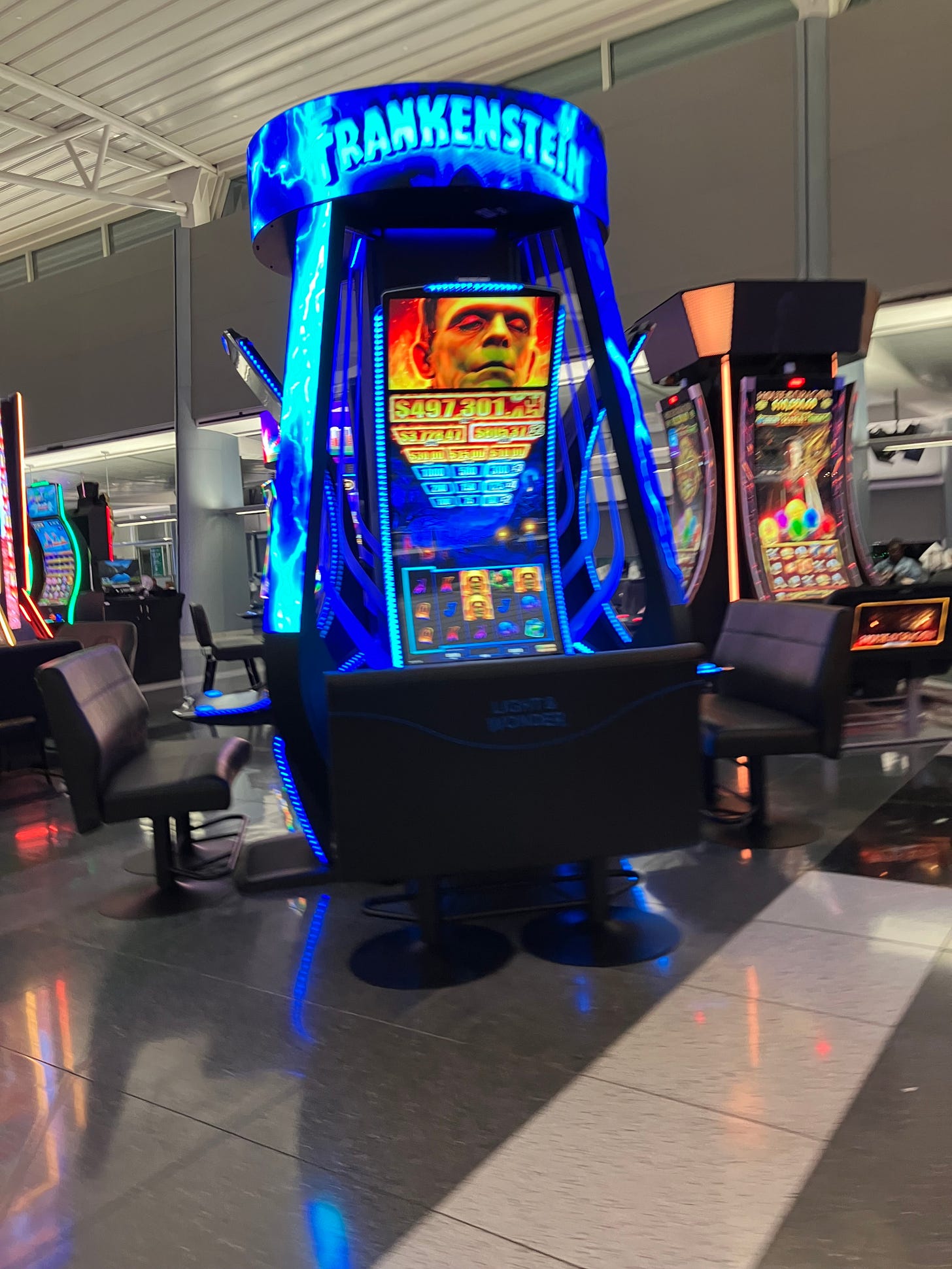Community Takes Work
Two Writing Conferences: Utah and Nevada
The two writing conferences I just returned from were as different as could be. The first, in Utah, was all literary. No one talked about publishing or the market; it was all writers, trying to make their books as good as possible, by their own and each others’ standards. The second, in Las Vegas, was all about the business of writing and reading. There were vendors presenting on new apps and tools. There were authors describing their workflows and processes. The two experiences complemented each other well, but it was a bit head-spinning. Both, though, were about building community, in their own ways.
I arrived in Utah feeling like I already knew the four other participants in my writing group: we had already read each other’s full manuscripts. Still, I was a newbie. It was the only creative writing workshop I’ve ever been to, and I fell into it through memoir. Despite all my years of teaching the essay, I had to learn how to respond to fiction and to conduct myself in a workshop like that. We spent two hours talking about each manuscript, so we got to know each other even better in person. Meals were shared with other workshops, for a total community of about 25-30 people. In the evenings we listened to readings, by the published writers who led the workshops and then short passages of our own. I signed up to read at the very last minute, which was a big deal. I never sign up to read. But everyone else in my group was reading and it felt important to participate. And it did also push me to address some feedback right away. I mashed together paragraphs from two different parts of my memoir1 about my father and stood at a podium to read this revision:
My dad was gay. Those are the words my husband suggested I put on a tee shirt, so I wouldn’t have to say them out loud. It was a secret. I was living in San Francisco in the 1990s when my father told me not to tell anyone. “Don’t tell your mom.”
When he left my mother we were living in New York City. It was the year after Stonewall. My parents sat their three young daughters down on a bed in their room and said, “we don’t love each other any more.” Then my father said, “I’m going back to my art career.”
Once, he had paid the obstetrician for each of our births with his paintings. My mother said, “Dr. B knew artists didn’t have much money. He came over to pick out the last one. He hung one of the others in his dining room.”
Reader, I tracked down that doctor. It took me six months to get up the nerve to call him and I reached his own grieving daughter. She still had two of my father’s abstract paintings. “Your father was a really wonderful artist,” she told me. I looked closely at the photos she sent. Which one was swapped for me and which for which sister? I couldn’t find any resemblance.
The founders of the Utah workshop believe that building community is the best way to sustain the writing life. It is surprising to me that that’s surprising to me. I just never spent much time creating a literary community, perhaps because I had my hands full with family and expected to be part of an academic community. But the people I met at this workshop made a big impression on me. Better late than never.
The next day I took a plane, masked and still coughing from an old cold, to Las Vegas, where I found another community at Author Nation (AN).2 With 1200 attendees in a casino-hotel, it was an entirely different experience. But my co-author
and I had attended last year, before we were done with our book, and spent a lot of time this year with other AN authors online, working on Kickstarters together. So we knew people already — and what a difference that makes! We met our online cohort for lunches. We had a dinner with our brilliant editor and her cabal of women writers, which was intimate, wide-ranging, and loud fun.This year everyone at Author Nation seemed to be talking about connecting directly with readers. Some writers were moving off Amazon and selling directly from their own websites or events at independent bookstores. Others were growing audiences through personal newsletters, or even book installments sent by subscription through the mail. In the meantime, we practiced that connecting with each other. It’s not natural to me. I had to sit down at tables with strangers and introduce myself. But it was worth it.
I once had an informational conversation with another writer about a competitive writers retreat I was applying for and she had received several times. “You’ll meet the best people you ever knew, and get really close really fast,” she said. “We always say we’ll stay in touch afterward and we never do.” She shrugged like that’s how it goes. I didn’t get that residency, but her words were vaguely disappointing. I can see why the intensity drops off, and not everyone will have time or inclination to reconnect again, but it’s wonderful to imagine people as spinning tops in random places in the world, waiting to knock together again. We just heard from a podcaster we met at Bouchercon in September who now wants to interview us about co-authoring and Kickstarter campaigns. I hope to swap revisions with my Utah colleagues. I will continue to meet my AN friends online.
This post doesn’t say much about the actual feedback I received on my memoir, purposefully. I’m still digesting it. In fact, I haven’t even read it all yet. But so far the whole experience has been very helpful— in the specifics and in the practice of sharing and receiving. I know I need to make time now to absorb and address it. That’s good news!
Have you been to literary conferences? What did you learn? Have you stayed in touch with conference friends? Inquiring minds want to know. Please comment!
Finally, two of many Substack pieces I’ve enjoyed recently, that are sort of about connecting dots.
- ’s post A Beginner at Everything on looking back at his first photography class, before he was ready for it.
Sarah Bochicchio’s essay Postcards from Virginia Woolf, which is a charming look at the most ephemeral of connections, flung far and wide. I love postcards; here’s one post I wrote about them.
These overlapping bits appeared separately in my posts Origin Story and Secrets and Lies.




Spaces that give writers/artists the chance to engage with one another are so interesting. It's easy for the solitude to morph into a sense of loneliness and isolation, so chances to engage with other creatives can be really life-affirming - they reconnect us to humanity! Of course, periods of solitude can be really positive too though. I guess it depends on each personality and their unique circumstances. Not having recited my work in public for years, I'm going to an informal open mic literary event in London later this week. Curious to discover what its like! We'll see...
What was the workshop you attended in Utah? I attended the Tin House Summer workshop and found the experience helpful and I did keep in touch with some of the people I met for a couple of years, but they are now more social media connections than people I exchange work with.